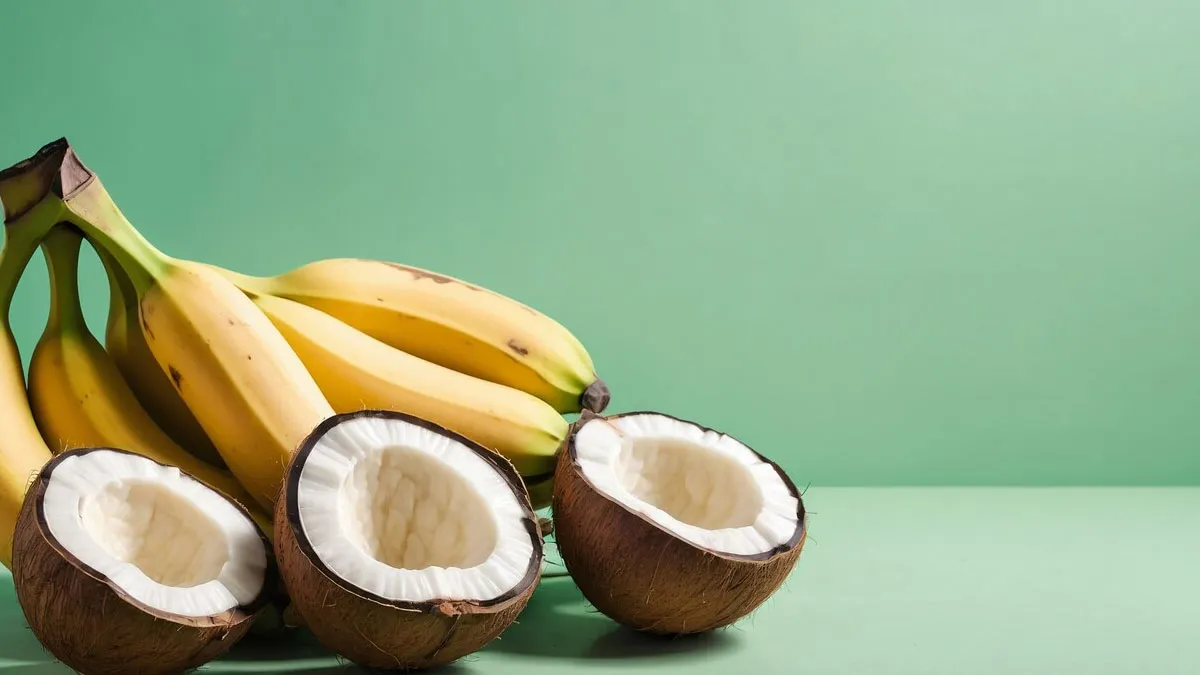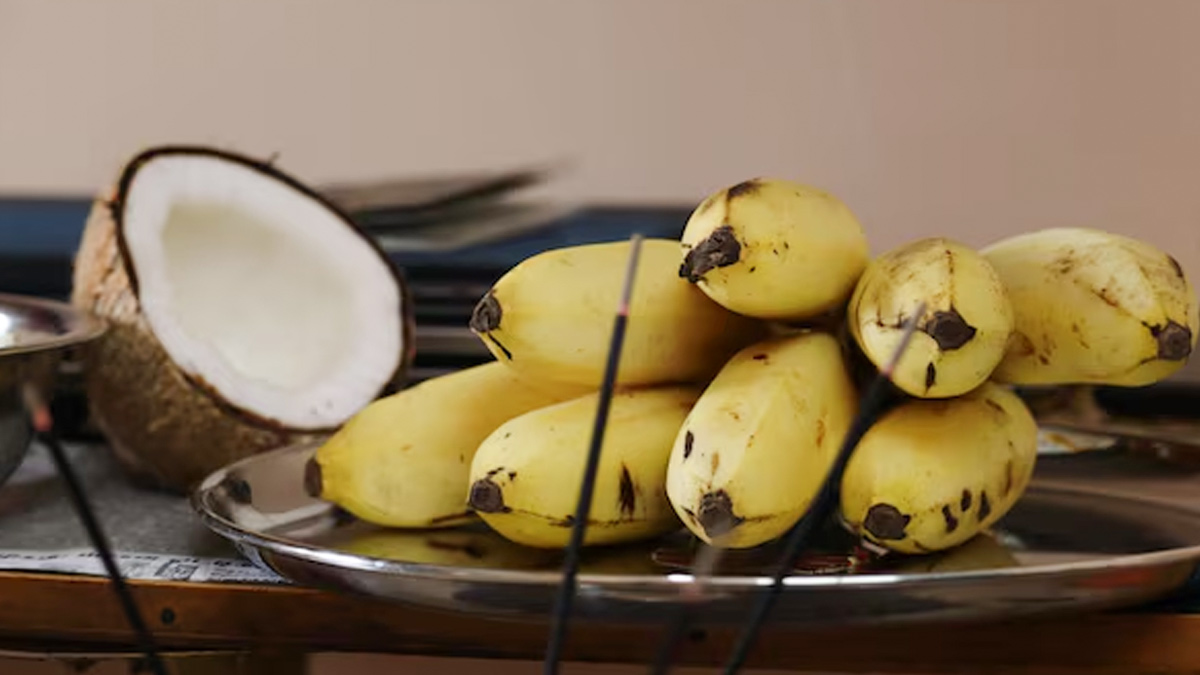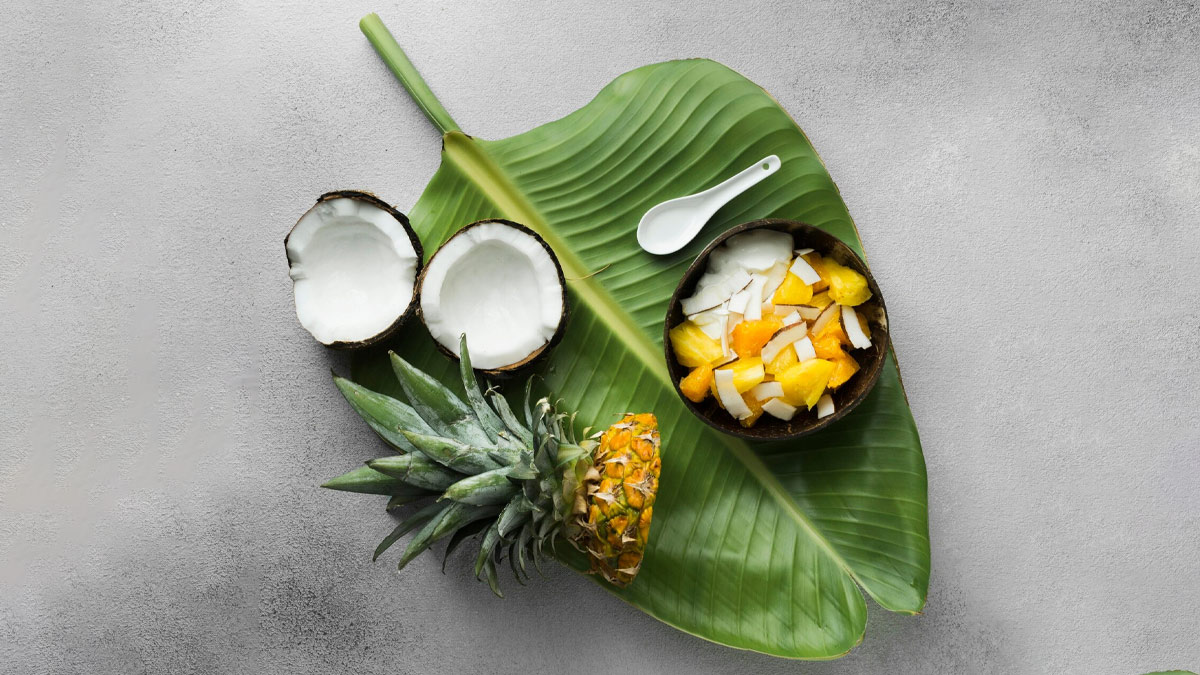
Kidneys are vital organs of the body that help filter waste and excess fluid from the blood, regulate blood pressure, and produce hormones that are essential for various bodily functions. To improve kidney health, doctors often recommend eating a balanced diet, which includes potassium-rich foods. Some of the potassium-packed foods include bananas and coconut. But what if a patient already has a kidney disease? Are foods like banana and coconut recommended then, especially together? An expert clarifies the same and shares why it is important to regulate potassium levels in the body.
Table of Content:-
Also Read: Here's Why You Should Add Banana Stem In Your Meals For Overall Wellbeing
Coconut and Banana—Both High-Potassium Foods

According to Dr Soubeer Ghosh, Consultant Nephrologist and Kidney Transplant Physician, PSRI Hospital, New Delhi, both bananas and coconuts are considered high-potassium foods. "A medium-sized banana contains around 400–450 mg of potassium, while coconut water and coconut meat also carry significant potassium content," he specifies.
Adding further, he shares, "For individuals with healthy kidneys or those in early stages of Chronic Kidney Disease (CKD), consuming such foods is usually not problematic. However, in advanced stages of kidney disease, the kidneys struggle to filter excess potassium efficiently." And therefore, combining two potassium-rich foods like banana and coconut can lead to dangerously high potassium levels in the blood, increasing the risk of hyperkalaemia, or potassium overload.
How Excessive Potassium Intake Affects The Kidneys

A 2022 review published in the International Journal of Nephrology and Renovascular Disease highlights that hyperkalaemia, or high potassium levels in the blood, is a growing concern, particularly among people with CKD. As kidney function worsens, the body’s ability to excrete potassium declines, increasing the risk of life-threatening heart complications. The condition is also linked to the use of medications that, while beneficial for heart and kidney health, can raise potassium levels.
Dr Ghosh adds, "Excess potassium, or hyperkalaemia, may result in symptoms like muscle weakness, fatigue, irregular heartbeat, or, in severe cases, sudden cardiac arrest. Hence, monitoring potassium intake becomes crucial for people in advanced stages of kidney disease."
What Happens When Kidney Disease Patients Eat Coconut And Banana Together?

According to Dr Ghosh, when people in advanced stages of kidney disease consume multiple potassium-rich foods together, such as bananas and coconuts, the potassium levels in their blood can rise quickly. Since their kidneys are not able to eliminate excess potassium efficiently, this can lead to a serious overload. “This overload places stress on the heart and can lead to arrhythmias, palpitations, and, in some cases, life-threatening cardiac complications.”
Coconut water, in particular, is often seen as a health drink and consumed frequently in hot weather, unknowingly increasing potassium intake. Since the potassium is highly bioavailable in these foods, in advanced kidney disease, the body cannot handle this load, increasing the risk of hyperkalaemia.
Also Read: Can Eating Bananas Cause a Cough? Expert Debunks the Myth
Signs Of Potassium Overload Or Hyperkalaemia
Early symptoms of hyperkalaemia may include:
- Fatigue
- Muscle weakness
- Numbness or tingling in hands and feet
- Nausea
- A slow or irregular heartbeat
- Chest discomfort or palpitations
If left unmanaged, these symptoms can escalate to paralysis or even sudden cardiac arrest, warns Dr Ghosh, adding that it is important for people in advanced stages of kidney disease to recognise and report these symptoms early.
A Final Word
While potassium is essential for maintaining kidney health and preventing kidney disease, people in advanced stages of kidney disease should avoid consuming a lot of potassium-rich foods. This is because it can become difficult for them to eliminate excess potassium from the body, leading to hyperkalaemia, or potassium overload. Instead, Dr Ghosh advises eating apples, pears, grapes, berries, and watermelon but in moderation. “For drinks, lemon water, apple juice, or unsweetened cranberry juice may be safer choices,” he concludes.
Also watch this video
How we keep this article up to date:
We work with experts and keep a close eye on the latest in health and wellness. Whenever there is a new research or helpful information, we update our articles with accurate and useful advice.
Current Version